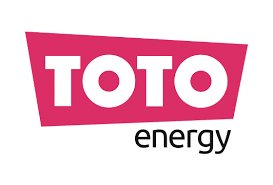Ofgem issued a provisional order to small energy supplier Outfox the Market, compelling the company to pay over £600,000 for the Feed-in-Tariff (FiT) scheme by 12th February 2020.
The FiT payment administered by the energy regulator is levied by suppliers to fund small-scale renewable generators. Should the firm fail to comply with its Levelisation Payment within the schedule, it might be subjected to a formal investigation and possible licence revocation.
Meanwhile, the supplier complained that Ofgem made public the order before the deadline has passed.
The Provisional Order
Outfox, the Market was called out in public by Ofgem for owing £602,930 in FiT payments. The amount is the firm’s quarterly due from October to December of 2019.
The regulator also cited the company’s history of delayed FiT payments within the last two years. Failure to pay results in the breach of the Electricity Standard Licence Condition (SLC) 33.

Ofgem concluded the firm would likely contravene its obligatory payment, owing to Outfox the Market informing the regulator that it will not be able to pay by the deadline. These conditions led Ofgem to publicise the matter through a provisional order.
In addition to a formal investigation and revocation of license should the supplier fail to meet the terms, Ofgem can also place a fine as a penalty for non-compliance to SLC 33.
Outfox the Market Response
The small energy supplier hit back on Ofgem, expressing disappointment over the public statement revealed by the regulator regarding the issue, calling it inaccurate and presumptive.
Outfox the Market also firmly stated that the decision to publicise the provisional order had no regulatory basis, and could have caused damage to the reputation of the company, mainly since the payment is not yet due at the time of announcement.
The firm further said it has not missed obligatory payments and is committed to meeting all licensing conditions. It vowed to pay to the FiT scheme by 12th February, the deadline set by Ofgem.

Outfox the Market is not the only small supplier to have expressed complaints against Ofgem. Solarplicity, the now collapsed supplier, said the statements made by the regulator regarding the firm’s financial situation had made it impossible to sell the business before it got debunked in August 2019.
Another supplier, Toto Energy, was called out by Ofgem as one among four suppliers cited to fail in complying with their Renewables Obligation. Toto collapsed in October 2019, just a few weeks after the announcement was made.
Several other suppliers had outstanding obligations but were not included in the list since they were deemed capable of paying by the deadline, which made the issuance of the provisional order more controversial.
Knowing the Supplier
Outfox the Market is the trading name of Foxglove Energy Supply Ltd, an electricity supply licence holder. The company started supplying energy to the UK market in September 2017. The company offers 100% green electricity to its customers, highlighting its position as a more approachable alternative supplier to more prominent energy firms.
Before this issue, the supplier had only had one other big controversy back in November 2018, when it announced a hike in direct debits but later backtracking after a few weeks after a customer cried foul over the price rise.
To date, the firm has received 249 complaints per 10,000 customers in the first quarter of 2019 and has since resolved 64 complaints in the third quarter of 2019.

As Outfox the Market offers renewable electricity, it follows that the firm is obliged to meet the Feed-in-Tariff scheme. FiT promotes low-carbon electricity generation and small-scale renewables, requiring suppliers that joined the system to pay for the production and export of electricity from sound installations.
Ofgem is the administrator for the said government programme.
The SLC 33 is the guiding regulation that requires suppliers in Great Britain to participate in the levelisation process of FiT. The participating firm needs to provide information regarding the amount of electricity supplied and pay the corresponding contribution to the FiT scheme.
